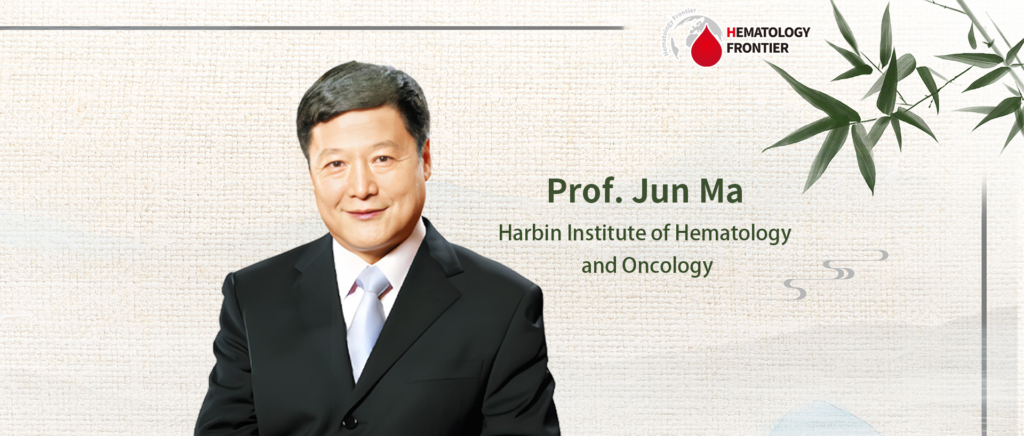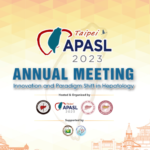
Local time on December 9th, the eagerly awaited 65th American Society of Hematology (ASH) Annual Meeting officially kicked off in San Diego, USA. The Oncology Insight reporting team delved into the forefront, witnessing the impressive presence of “The Voice of China” on the international stage. ASH is one of the largest and most comprehensive international academic conferences in the field of hematology globally, attracting numerous experts and scholars from around the world each year, including a significant representation from China. On the second day of the conference, we had the privilege of interviewing Professor Ma Jun, a leading figure in the field of hematology in China and the Director of the Harbin Institute of Hematology and Oncology. He shared his insights and highlights of this year’s conference. Below is Professor Ma Jun’s perspective:
This year’s ASH conference, both online and offline, saw a record-breaking attendance of approximately 35,000 participants. I had the opportunity to attend ASH in person last year when the pandemic was at its peak. As one of the only two Chinese scholars present at the offline conference last year, the President of ASH warmly welcomed me, saying, “Welcome back to the international embrace.” This year, 168 Chinese scholars participated in the ASH conference, though not reaching the pre-pandemic annual attendance of 500 to 800 people, it signifies the formal return of Chinese scholars to international engagement. Participation in international conferences is crucial, allowing us to absorb global experiences and technologies, strengthen innovation through exchanges, and shape the future of hematologic oncology.
Yesterday evening, we hosted “China Night,” symbolized by red lanterns, at the exquisite banquet hall of San Diego’s most beautiful golf course. More than 120 domestic and international scholars, including Professor Owen, President of the American Lymphoma Society, Professor Shomosaka, President of the International Cell Therapy Society, Professor Robert Gale, Editor-in-Chief of the American Journal of Hematology and Lymphoma, as well as renowned Chinese scientists Professor Wang Luhua, Professor He Xuhua, and Professor Liu Delong, gathered to present academic reports on the treatment of leukemia, lymphoma, and myeloma in China.
Yesterday marked the opening ceremony of the ASH conference, and we experienced an increasing influence of Chinese contributions in the leukemia, lymphoma, education, and CAR-T sessions. China had approximately 487 selected research papers, including oral presentations, poster displays, and advisory board meetings. Many hematologists from China brought a distinctive Chinese flair to ASH, creating an exhilarating atmosphere.
In the leukemia session, targeted therapies were prominently featured, including first, second, and third-generation FMS-like tyrosine kinase 3 (FLT3) inhibitors, first, second, and third-generation isocitrate dehydrogenase-1 (IDH1) inhibitors, and novel targeted therapies for acute myeloid leukemia. In the treatment of acute lymphoblastic leukemia, in addition to CAR-T, dual monoclonal antibodies, antibody-conjugated biologics (ABC) combined with chemotherapy, small molecule targeted therapies, allogeneic transplantation, and cellular drug therapy stood out as major highlights. These treatments have significantly improved the cure rates for many adult patients, with a cure rate of over 90% for children, and new treatment methods for relapsed and refractory patients.
Moreover, translational medicine gained attention, with about three sessions dedicated to this field. Topics included cell translational medicine, such as conventional CAR-T, allogeneic CAR-T, third, and fourth-generation CAR-T, and an increasing number of dual-target and multi-target CAR-T therapies. In terms of the mutual translation between basic and clinical aspects, the education and examination system in the United States, where specialized doctors often hold PhD or MD degrees, is worth learning from. The President of ASH mentioned that the peak forums of hematology in the United States and China, focusing on lymphoma and myeloma, will be held in China next year. We look forward to meeting again at the international conference in Harbin in July.
Professor Ma Jun

Chief Physician, Professor, Doctoral Supervisor
Director of the Harbin Institute of Hematology and Oncology
Supervisor of the Board of Directors, Chinese Society of Clinical Oncology (CSCO)
Vice President, Asian Clinical Oncology Society
Chairman, Leukemia Expert Committee, Chinese Society of Clinical Oncology
Leader, Expert Group on Oncology, National Health Commission Capacity Building and Continuing Education Center
Editor-in-Chief, Leukemia and Lymphoma Journal

